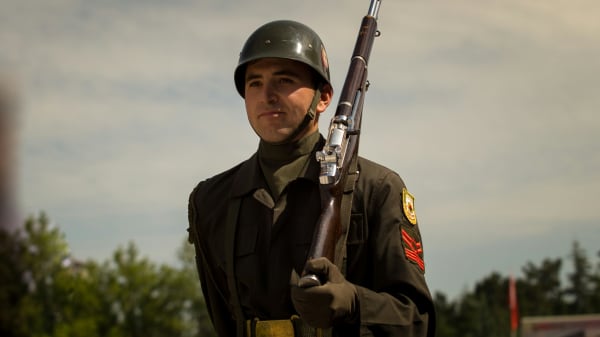Military leadership is a critical aspect of any armed force organization. The overall effectiveness, cohesion, and combat readiness of a military unit heavily rely on the competency and efficiency of its leaders. In essence, military leadership is the process of influencing others to accomplish the mission by providing purpose, direction, and motivation. What shapes this critical aspect of the military? And why is it so substantial? This article delves into the importance of leadership skills in the military.
What is Military Leadership?
Primarily, military leadership refers to the process of influencing others to achieve a common goal, which in this context, is the successful accomplishment of a mission. It involves establishing a clear vision, sharing that vision with others so that they will follow willingly, providing the information, knowledge, and methods to realize that vision, and coordinating and balancing the conflicting interests of all members or stakeholders. But what makes leadership skills so critical in the military context?
The Integral Role of Leadership Skills in the Military
Military leadership is often characterized by a stringent hierarchical structure and the need to make critical decisions under stressful circumstances. Here are some reasons why military leadership is critically important:
1. Ensuring Unit Cohesion
The role of leadership is central in ensuring unit cohesion, which is crucial in maintaining the morale and well-being of military personnel. Leaders who have the ability to inspire, motivate, and guide their subordinates can create a sense of unity, mutual trust, and understanding among the members of their unit.
2. Decision Making Under High-Stress Conditions
Military leaders often have to make important decisions under intense pressure and in situations of uncertainty. These decisions can have life or death consequences and can affect both their unit members and the larger strategic picture. Effective leadership is required for these high-stakes situations.
3. Building a Culture of Accountability
A sense of responsibility and accountability is crucial in a military context. Military leaders need to foster an environment where everyone understands their role, and each member feels accountable for their actions. This ethos of accountability contributes to the overall effectiveness of the unit and the broader military organization.
4. Ensuring Combat Readiness
A military leader has the essential task of preparing their troops for combat operations. An effective leader ensures that their troops are trained, equipped, and mentally prepared for the challenges they will face in the field.
5. Strategic Planning
Military leaders must have the ability to think strategically, formulate plans and strategies, and anticipate future challenges. A leader's direction and strategic thinking significantly impact the success of military operations.
Building Strong Leadership Skills
Given the critical importance of leadership skills within a military context, it is imperative to cultivate these skills effectively. Here are some elements of effective military leadership:
1. Clear Communication
One of the most essential leadership skills in the military context is the ability to communicate clearly, effectively, and decisively.
2. Leading by Example
As the saying goes, a leader must "walk the talk." Military leaders are expected to lead by example, demonstrating commitment, courage, professionalism, and adherence to military principles and values.
3. Emotional Intelligence
This includes the ability to regulate one's own emotions, empathize with others, and manage social relationships effectively. In a high-stress environment such as the military, emotional intelligence can be particularly vital.
4. Adaptability
In the ever-changing nature of warfare and military operations, military leaders must demonstrate adaptability and flexibility, adjusting their strategies and tactics as required.
5. Problem-Solving Ability
Whether it's dealing with logistical challenges, strategic obstacles, or personnel issues, military leaders must have excellent problem-solving skills, making quick, informed decisions even under pressure.
Military leadership importance transcends beyond the battlefield. Many of the skills and qualities that make an effective military leader are also applicable in civilian life and non-military organizational contexts. Therefore, a comprehensive understanding of the role and importance of leadership skills in the military offers a more profound appreciation of our military forces' capability and success.
In essence, the role of a military leader is to build a team that achieves its mission while caring for its people. It is not an easy task, but those who step up and take on the mantle of leadership can make a real difference in the lives of their soldiers and the success of their missions. The development of effective military leadership, therefore, remains a high priority for armed forces the world over.




